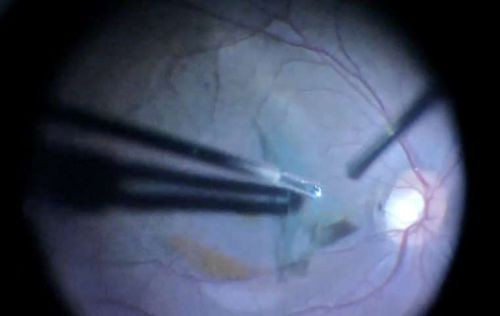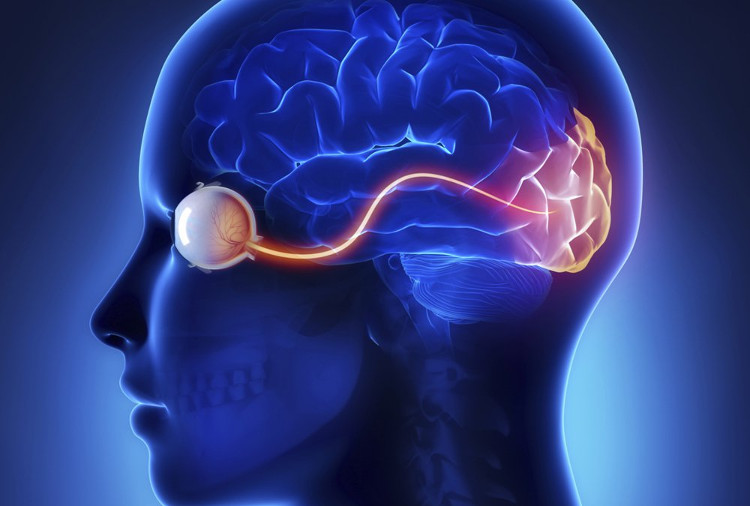There has been a way to help people with brain injury regain their eyesight
One month after surgery, the patient's vision improved with an average of 20/40 from the average of December 20, 90, within a few months almost all patients had 20/20 vision.
The researchers removed the vitreous tissue behind the lens of the eye and replaced them with a saline solution for 20 patients with Terson syndrome.
One month after surgery, the patient's vision improved to an average of 20/40 from an average of 20/1290, within a few months almost all patients had vision 20/20 .

New eye surgery technique.
CDC estimates that in 2010, about 2.5 million emergency or death cases were associated with brain trauma in the United States. This type of injury can cause serious damage to a patient's eyesight, and even lead to blindness. Today, researchers have discovered that vision can be restored in people who have suffered a traumatic brain injury. They can even help people who are blind due to trauma to recover their vision as usual.

Loss of vision after accident brain injury is quite common.
A small study by the Washington University School of Medicine and Pharmacy in St. Louis, the Kresge Eye Institute at Wayne University in Detroit and the LV Prasad Eye Institute in India were published in the recent Ophthalmology magazine. The study included 20 patients with Terson syndrome after surgery, a form of hemorrhage that is primarily caused by brain injury such as traffic accidents. Some patients have hemorrhage in both eyes, thus allowing research to be performed on 28 eyes.
The techniques used to restore vision in these patients are known as surgery to remove the lens of the eye. The surgery removed and replaced it with a salt solution. These patients were divided into groups that had had surgery for hemorrhage within three months and the group had hemorrhage after three months.
One month after surgery, the patient's vision improved with an average of 20/40 from the average of December 20, 90, within a few months almost all patients had 20/20 vision.

This new surgical method is a hope for millions of people.
The researchers noted that between the time of injury and surgery, there will be no factors affecting the patient's vision. This is an extremely important development, when the patient is close to death, the patient must be stabilized before surgery and restore vision afterwards.
Rajendra S. Apte, a professor at the Washington University School of Medicine, said: "It is important to find the ideal time after the accident to have surgery without a negative impact on vision. can impact greatly, bringing hope to millions of people ".
- Technology for early detection of brain injury in children
- Hats detect brain shocks
- The mysterious disease is only diagnosed after the patient has died, because the doctor needs to cut their brain
- Decode why the best vision at 8pm and 8am?
- Soldiers injured in the brain are at high risk of seizures
- Real story 'soul changes after head injury'
- Women's brains recover faster than men
- Children with shaking are at risk of developing brain injury!
- Inoculation of the chip into the brain restores motor ability to paralyzed people
- Secret bones of woodpecker heads
- Minor head injury is also dangerous
- The boxer at the Rio 2016 Olympic Games saw the biggest change for more than 30 years
 Green tea cleans teeth better than mouthwash?
Green tea cleans teeth better than mouthwash? Death kiss: This is why you should not let anyone kiss your baby's lips
Death kiss: This is why you should not let anyone kiss your baby's lips What is salmonellosis?
What is salmonellosis? Caution should be exercised when using aloe vera through eating and drinking
Caution should be exercised when using aloe vera through eating and drinking New application allows controlling robots with headphones?
New application allows controlling robots with headphones?  New generation robot dog can swim under water
New generation robot dog can swim under water  Invention of a visual aid technology device
Invention of a visual aid technology device  Hallucinations make drivers cause accidents for pedestrians
Hallucinations make drivers cause accidents for pedestrians  Snakes look very poor
Snakes look very poor  Global vision is declining
Global vision is declining 